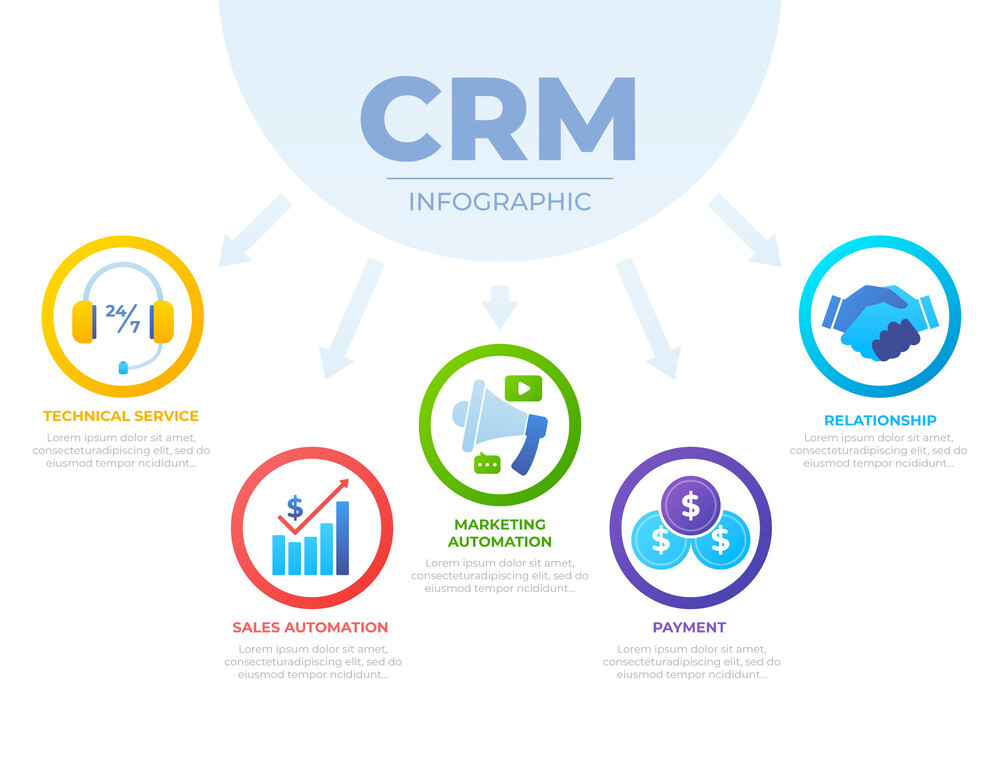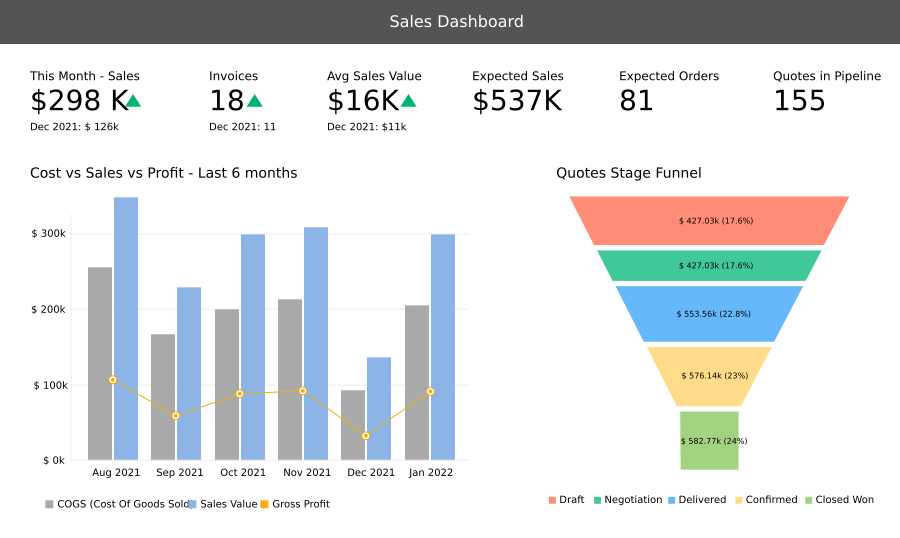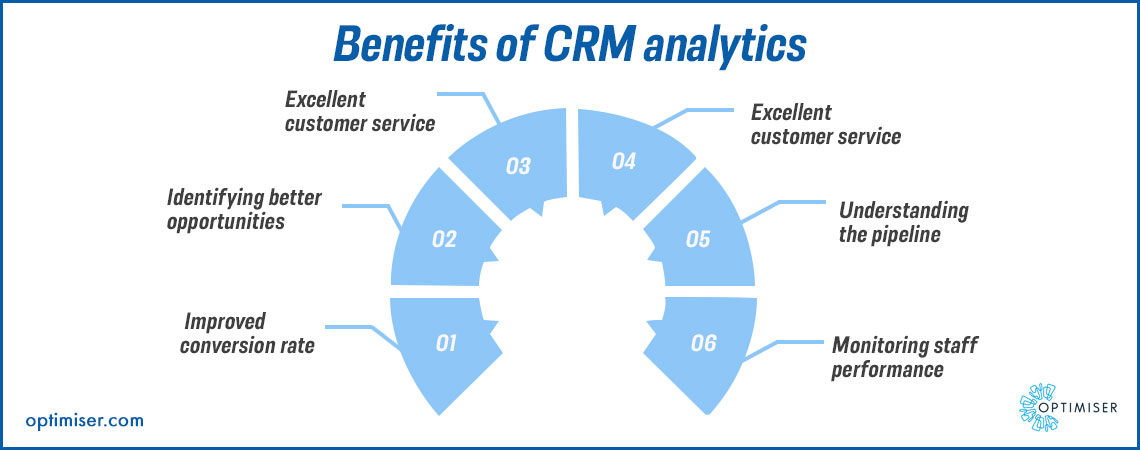
Introduction: The Power of CRM in Modern Marketing
In today’s fast-paced digital landscape, businesses are constantly seeking ways to connect with their customers, build lasting relationships, and drive revenue growth. One of the most powerful tools in a marketer’s arsenal is Customer Relationship Management (CRM). CRM isn’t just about managing contacts; it’s a comprehensive strategy that focuses on understanding your customers, personalizing their experiences, and optimizing every interaction. And at the heart of any successful CRM strategy are the right marketing tools.
This comprehensive guide will delve into the world of CRM marketing tools. We’ll explore what they are, why they’re essential, and how to choose the perfect ones for your specific needs. We’ll also dive deep into specific tool categories, providing insights into their functionalities, benefits, and real-world applications. Whether you’re a seasoned marketer or just starting, this guide will equip you with the knowledge to leverage CRM marketing tools and transform your marketing efforts.
What are CRM Marketing Tools? A Definition
CRM marketing tools are software applications designed to help businesses manage and analyze customer interactions and data throughout the customer lifecycle. They go beyond simple contact management, offering a suite of features to streamline marketing processes, improve customer engagement, and boost sales. These tools centralize customer information, allowing marketers to gain a 360-degree view of each customer, track their behavior, and tailor marketing campaigns accordingly.
The core functions of CRM marketing tools typically include:
- Contact Management: Storing and organizing customer data, including contact details, purchase history, and communication logs.
- Lead Management: Tracking leads through the sales funnel, from initial contact to conversion.
- Marketing Automation: Automating repetitive marketing tasks, such as email campaigns, social media posts, and lead nurturing.
- Sales Force Automation: Streamlining sales processes, managing sales pipelines, and tracking sales performance.
- Reporting and Analytics: Providing insights into customer behavior, campaign performance, and sales results.
Essentially, CRM marketing tools are the backbone of a customer-centric marketing strategy, empowering businesses to understand their customers better and deliver more personalized and effective marketing experiences.
Why are CRM Marketing Tools Important? The Benefits Explained
The adoption of CRM marketing tools offers a multitude of benefits that can significantly impact a business’s bottom line. Here’s a breakdown of the key advantages:
- Improved Customer Relationships: CRM tools enable businesses to build stronger relationships with their customers by providing a centralized view of all interactions. This allows for personalized communication, targeted offers, and proactive customer service.
- Increased Sales and Revenue: By streamlining sales processes, nurturing leads effectively, and identifying upselling and cross-selling opportunities, CRM tools can significantly boost sales and revenue.
- Enhanced Marketing Efficiency: Automation features within CRM tools free up marketers from repetitive tasks, allowing them to focus on strategic initiatives. This leads to more efficient campaign execution and improved ROI.
- Better Data-Driven Decisions: CRM tools provide valuable insights into customer behavior, campaign performance, and sales results. This data empowers businesses to make informed decisions and optimize their marketing strategies.
- Improved Customer Retention: By understanding customer needs and preferences, businesses can proactively address issues, provide exceptional service, and build customer loyalty, leading to improved retention rates.
- Increased Productivity: CRM tools streamline workflows, automate tasks, and provide easy access to information, boosting productivity across marketing and sales teams.
- Scalability: CRM systems can scale with your business. As your customer base grows, your CRM system can handle the increasing volume of data and interactions.
In short, CRM marketing tools are not just nice-to-haves; they’re essential for businesses that want to thrive in today’s competitive market. They provide a competitive edge by enabling businesses to understand their customers better, personalize their marketing efforts, and drive sustainable growth.
Key Features to Look for in CRM Marketing Tools
Choosing the right CRM marketing tool can be a daunting task, given the vast array of options available. To make an informed decision, it’s crucial to understand the key features that are essential for your business needs. Here’s a list of must-have features:
- Contact Management: The foundation of any CRM system. It should allow you to store, organize, and manage customer data, including contact details, communication history, and purchase information.
- Lead Management: The ability to track leads, qualify them, and move them through the sales pipeline. Features like lead scoring, lead nurturing, and pipeline management are crucial.
- Marketing Automation: Automate repetitive marketing tasks, such as email marketing, social media posting, and lead nurturing workflows. Look for features like email templates, segmentation, and campaign tracking.
- Sales Force Automation (SFA): Streamline sales processes, manage sales pipelines, and track sales performance. Features like opportunity management, quote generation, and sales forecasting are important.
- Reporting and Analytics: Generate reports on key metrics, such as sales performance, campaign effectiveness, and customer behavior. The ability to customize reports and dashboards is essential.
- Integration Capabilities: Ensure the CRM tool integrates seamlessly with other tools you use, such as email marketing platforms, social media channels, and e-commerce platforms.
- Mobile Accessibility: Access your CRM data and manage your marketing efforts on the go with a mobile app or responsive design.
- Customization Options: The ability to customize the CRM system to fit your specific business needs and workflows.
- User-Friendliness: A user-friendly interface that’s easy to navigate and use, even for non-technical users.
- Security Features: Robust security features to protect your customer data, including data encryption, access controls, and regular backups.
Prioritize these features based on your business’s specific needs and the size of your marketing team.
Top CRM Marketing Tools: A Comparative Analysis
The CRM landscape is filled with a wide variety of tools, each with its own strengths and weaknesses. Here’s a comparative analysis of some of the leading CRM marketing tools:
HubSpot CRM
Overview: HubSpot CRM is a popular, all-in-one CRM platform that offers a free version and a range of paid plans. It’s known for its user-friendly interface, comprehensive features, and strong integration capabilities.
Key Features: Contact management, lead management, marketing automation, sales force automation, reporting and analytics, email marketing, landing pages, and social media integration.
Pros: Free version available, user-friendly interface, comprehensive features, strong integration capabilities, excellent customer support.
Cons: Limited features in the free version, pricing can be expensive for larger businesses.
Best for: Small to medium-sized businesses (SMBs) looking for an all-in-one CRM solution.
Salesforce Sales Cloud
Overview: Salesforce Sales Cloud is a leading CRM platform used by businesses of all sizes. It offers a wide range of features and customization options, but it can be complex to set up and use.
Key Features: Contact management, lead management, sales force automation, opportunity management, quote generation, sales forecasting, reporting and analytics, and extensive customization options.
Pros: Extensive features, highly customizable, strong integration capabilities, large ecosystem of apps and partners.
Cons: Complex to set up and use, can be expensive, steep learning curve.
Best for: Large enterprises and businesses with complex sales processes.
Zoho CRM
Overview: Zoho CRM is a versatile CRM platform that offers a range of features at a competitive price. It’s a good option for businesses looking for a balance of features and affordability.
Key Features: Contact management, lead management, sales force automation, marketing automation, email marketing, social media integration, and reporting and analytics.
Pros: Affordable pricing, user-friendly interface, good feature set, strong integration capabilities.
Cons: Marketing automation features are not as robust as some other platforms, limited customization options.
Best for: SMBs and businesses looking for an affordable and feature-rich CRM solution.
Pipedrive
Overview: Pipedrive is a sales-focused CRM platform designed for managing sales pipelines and closing deals. It’s known for its visual interface and ease of use.
Key Features: Contact management, lead management, sales pipeline management, deal tracking, sales automation, and reporting and analytics.
Pros: User-friendly interface, visual pipeline management, easy to use, affordable pricing.
Cons: Limited marketing automation features, not as feature-rich as some other platforms.
Best for: Sales teams and businesses focused on pipeline management and deal closing.
ActiveCampaign
Overview: ActiveCampaign is a marketing automation platform with robust CRM features. It’s a good option for businesses that want to automate their marketing and sales processes.
Key Features: Contact management, lead management, marketing automation, email marketing, sales automation, and reporting and analytics.
Pros: Powerful marketing automation features, user-friendly interface, good integration capabilities.
Cons: Can be more expensive than some other platforms, sales features are not as robust as some other platforms.
Best for: Businesses that want to automate their marketing and sales processes.
This is just a snapshot of the CRM landscape. Consider your specific needs, budget, and technical expertise when making your selection.
Implementing CRM Marketing Tools: A Step-by-Step Guide
Implementing CRM marketing tools can be a transformative process, but it requires careful planning and execution. Here’s a step-by-step guide to help you get started:
- Define Your Goals and Objectives: Before you start, clearly define your goals and objectives for implementing CRM. What do you want to achieve? What problems are you trying to solve?
- Assess Your Needs: Evaluate your current marketing and sales processes. Identify your pain points and areas for improvement.
- Choose the Right CRM Tool: Based on your needs and budget, select the CRM tool that best fits your requirements.
- Plan Your Implementation: Develop a detailed implementation plan, including timelines, tasks, and resource allocation.
- Data Migration: Migrate your existing data into the new CRM system. Ensure data accuracy and completeness.
- Customize the CRM System: Customize the CRM system to fit your specific business needs, including creating custom fields, workflows, and reports.
- Train Your Team: Provide thorough training to your team on how to use the CRM system effectively.
- Test and Refine: Test the CRM system thoroughly before launching it to ensure it’s working as expected. Refine your processes and workflows as needed.
- Monitor and Optimize: Continuously monitor your CRM performance and optimize your processes to improve results.
Successful implementation requires a commitment to planning, training, and continuous improvement.
CRM Marketing Strategies: Maximizing Your ROI
Once you have your CRM tools in place, it’s time to develop effective marketing strategies to maximize your return on investment (ROI). Here are some proven strategies:
- Segment Your Audience: Divide your customer base into segments based on demographics, behavior, and purchase history. This allows you to tailor your marketing messages and offers to specific groups.
- Personalize Your Communication: Use customer data to personalize your email campaigns, website content, and other marketing communications. Address customers by name, reference their past purchases, and offer relevant product recommendations.
- Automate Your Marketing: Use marketing automation features to automate repetitive tasks, such as email nurturing, lead scoring, and social media posting. This frees up your time to focus on strategic initiatives.
- Nurture Your Leads: Develop lead nurturing campaigns to guide leads through the sales funnel. Provide valuable content, such as blog posts, ebooks, and webinars, to educate leads and build trust.
- Implement a Loyalty Program: Reward your loyal customers with exclusive offers, discounts, and other perks. This helps to build customer loyalty and increase retention rates.
- Track Your Results: Monitor your campaign performance and track key metrics, such as conversion rates, click-through rates, and ROI. Use this data to optimize your marketing efforts.
- Integrate with Social Media: Integrate your CRM with your social media channels to track social media activity, engage with customers, and generate leads.
- Use CRM for Customer Service: Leverage your CRM data to provide excellent customer service. Track customer issues, resolve complaints quickly, and proactively address customer needs.
By implementing these strategies, you can leverage your CRM tools to build stronger customer relationships, increase sales, and drive business growth.
Best Practices for CRM Marketing Success
To ensure the success of your CRM marketing efforts, it’s important to follow these best practices:
- Prioritize Data Quality: Ensure the accuracy and completeness of your customer data. Regularly clean your data and update it as needed.
- Focus on the Customer Experience: Put the customer at the center of everything you do. Personalize your interactions, provide excellent service, and build lasting relationships.
- Align Sales and Marketing: Ensure that your sales and marketing teams are aligned and working together towards common goals.
- Regularly Review and Optimize: Continuously review your CRM performance and optimize your processes and strategies to improve results.
- Provide Ongoing Training: Provide ongoing training to your team on how to use the CRM system effectively and implement new strategies.
- Embrace Mobile: Make sure your CRM is accessible on mobile devices to enable your team to work efficiently on the go.
- Stay Updated: Keep up-to-date with the latest CRM trends and technologies to stay ahead of the curve.
- Measure, Measure, Measure: Track your key performance indicators (KPIs) to measure the effectiveness of your CRM marketing efforts.
By following these best practices, you can maximize your CRM marketing ROI and achieve sustainable business growth.
The Future of CRM Marketing: Trends to Watch
The world of CRM marketing is constantly evolving. Here are some of the key trends to watch:
- Artificial Intelligence (AI): AI is being used to automate tasks, personalize customer experiences, and provide valuable insights into customer behavior.
- Machine Learning (ML): ML is being used to predict customer behavior, identify leads, and optimize marketing campaigns.
- Hyper-Personalization: Businesses are using data to deliver highly personalized experiences to their customers.
- Voice Search: Businesses are optimizing their CRM systems for voice search to provide customers with a more convenient way to interact.
- Integration with Emerging Technologies: CRM systems are being integrated with emerging technologies, such as the Internet of Things (IoT) and augmented reality (AR).
- Focus on Data Privacy: Businesses are becoming increasingly focused on data privacy and security.
Staying ahead of these trends will be crucial for businesses that want to remain competitive in the future.
Conclusion: Harnessing the Power of CRM Marketing Tools
CRM marketing tools are indispensable for businesses that want to thrive in today’s competitive market. By choosing the right tools, implementing effective strategies, and following best practices, you can transform your marketing efforts, build stronger customer relationships, and drive sustainable growth.
Remember to choose tools that align with your specific business needs, prioritize data quality, focus on the customer experience, and continuously optimize your processes. By embracing the power of CRM marketing, you can unlock your business’s full potential and achieve lasting success.
Embrace the journey, stay informed, and adapt to the ever-evolving landscape of CRM marketing. The future of your business may very well depend on it.





